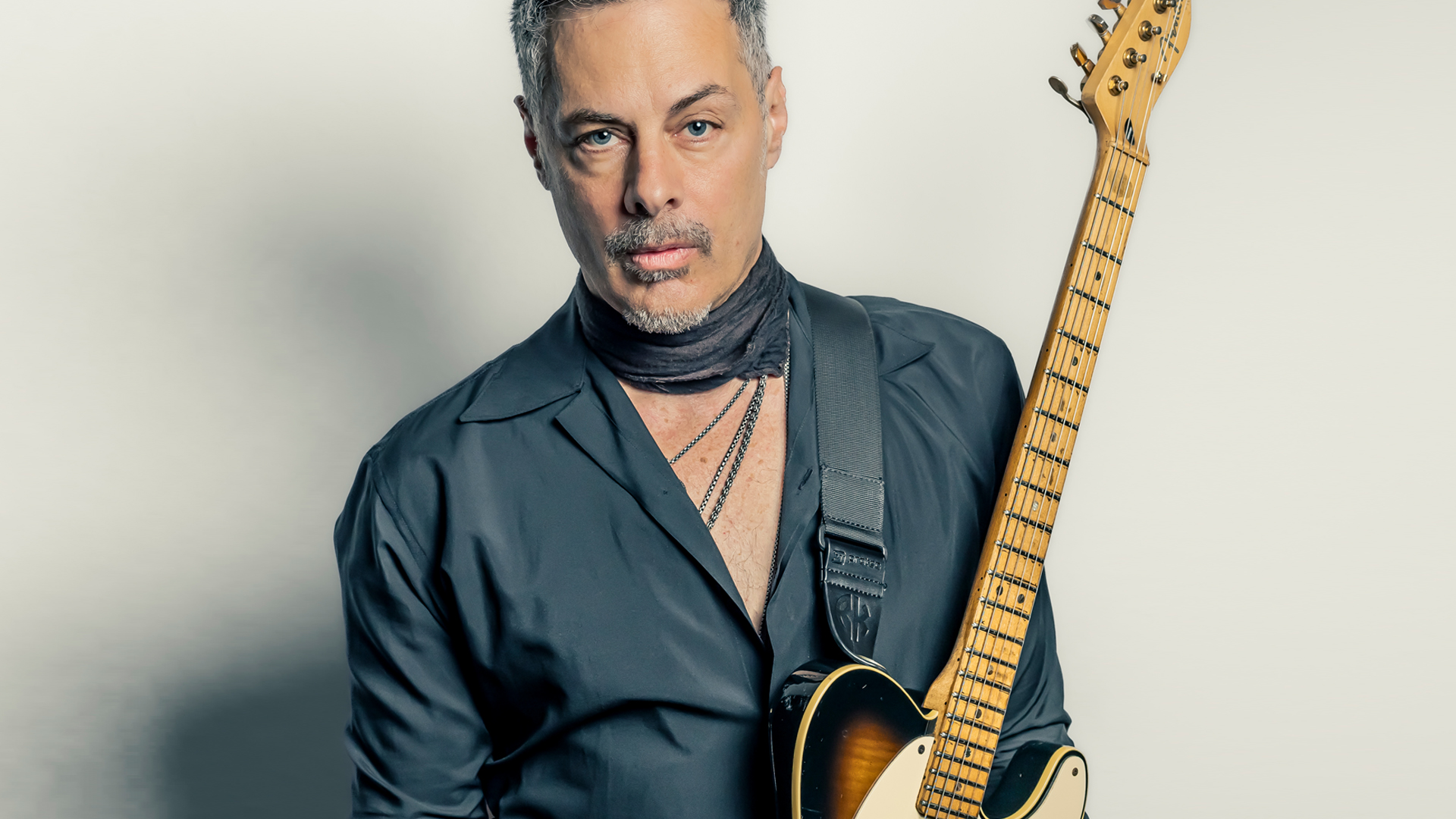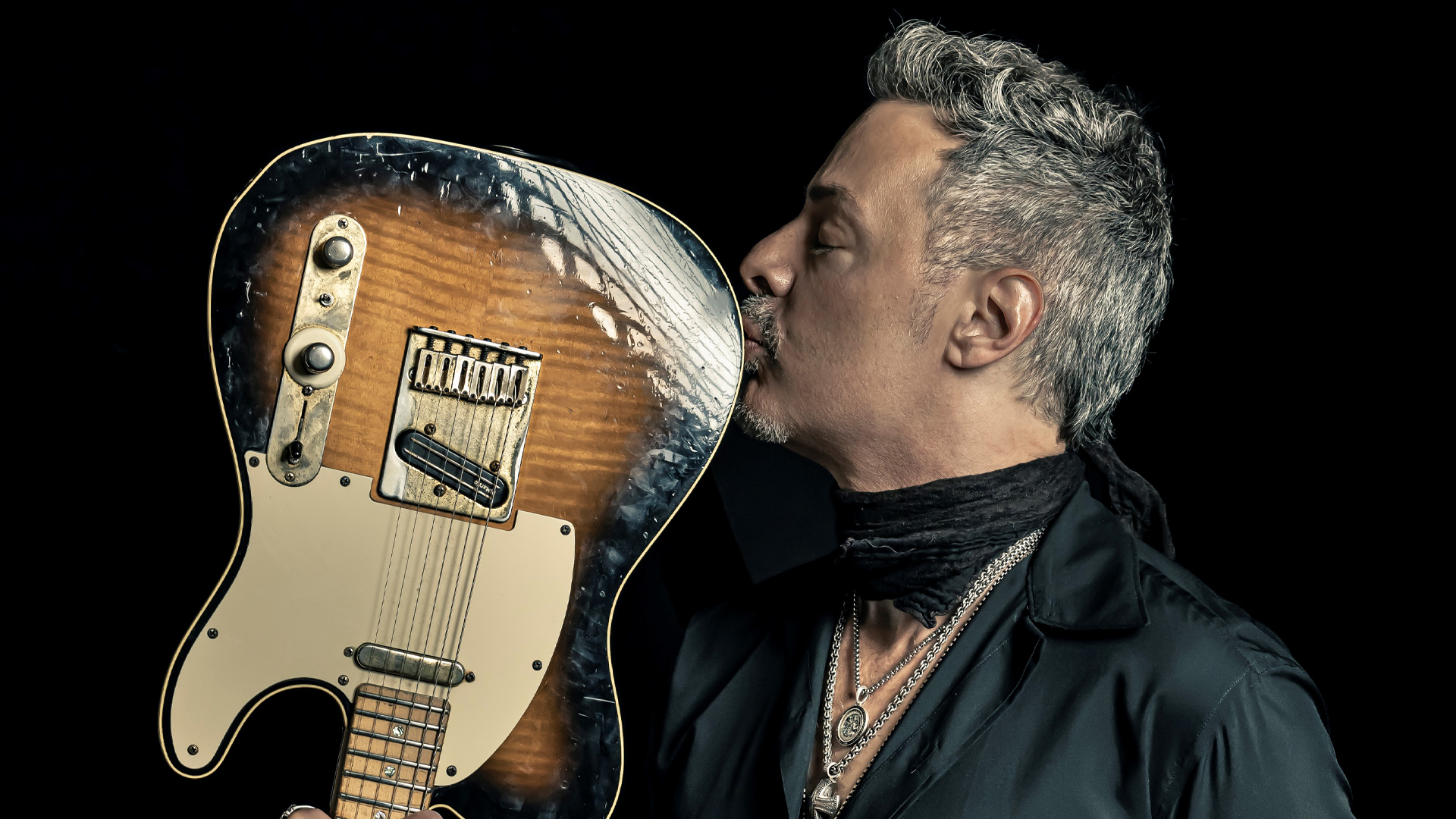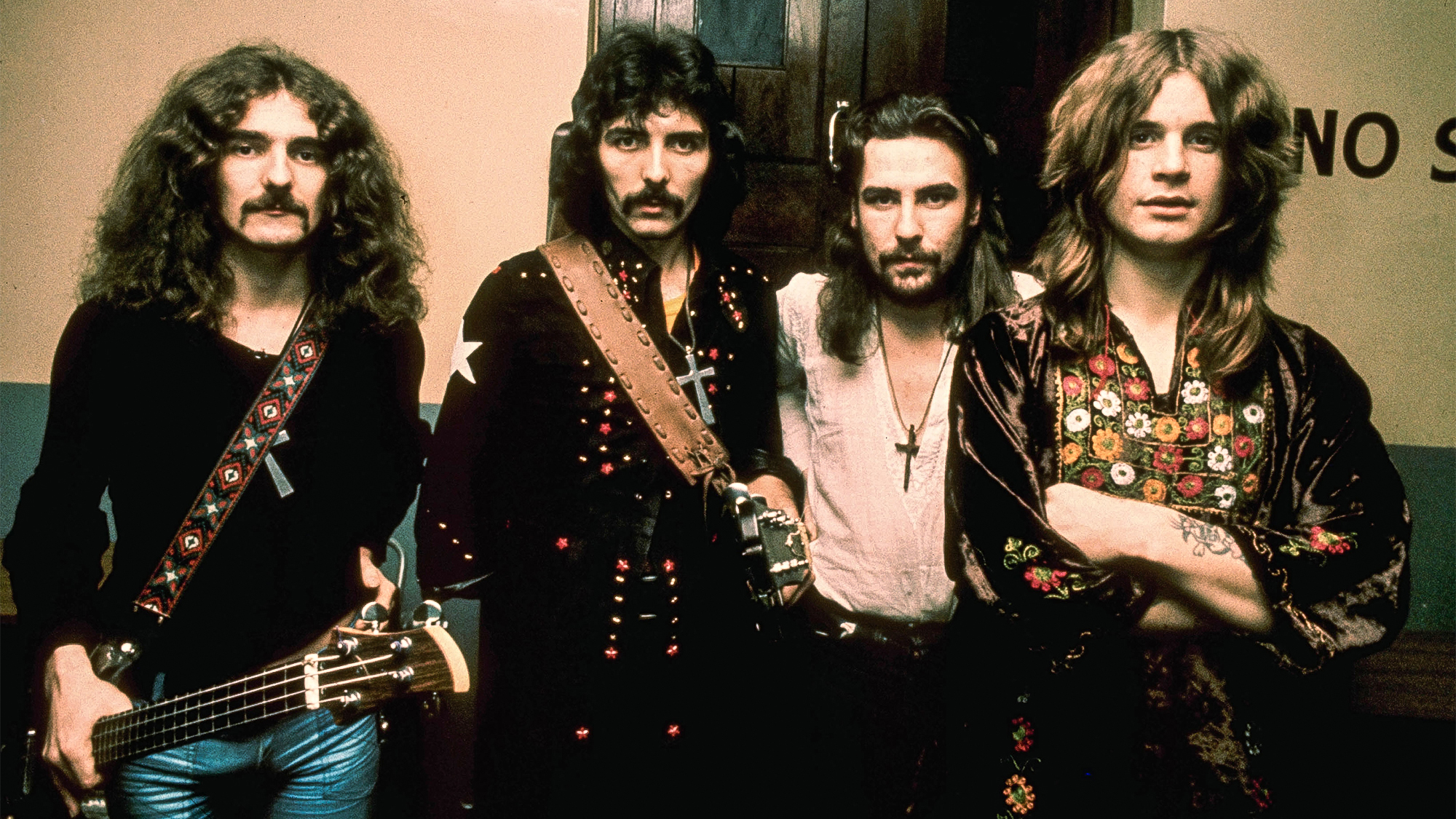"I've got a gig this Friday, and I haven't played guitar in over a month. What am I going to do?" Richie Kotzen tells why rehearsing sometimes makes no difference
Kotzen also reveals how a song from his new solo album, 'Nomad,' came to him in a dream

All the latest guitar news, interviews, lessons, reviews, deals and more, direct to your inbox!
You are now subscribed
Your newsletter sign-up was successful
Richie Kotzen has always been a low-key renegade. In conversation, he's engaging, if not laconic. His cool, calm and edgy demeanor perfectly contrasts the inherent pyrotechnics within his guitar playing. "So much of what I do is based on being in the moment," Kotzen tells Guitar Player.
And that's why Kotzen's latest solo offering, the aptly named Nomad, is critical to the next phase of his career. "It's really important for me," he says of Nomad. "There's only eight songs. Every one of those songs was begging to be written."
Nomad's cover, which features Kotzen contemplatively staring off into a distant wilderness, sets the tone. The album's track listing, featuring titles like "Cheap Shots," "Insomnia," "Nihilist" and "Escape," drives home the vibe.
Kotzen agrees: "These songs were saying, 'Write me, write me, write me.' It was not a situation where I said, 'Let's try and do some writing.' That's a different animal, a different beast. It's not a personal or as deep."
Depth of personality is the name of the game for Kotzen, a Fender Telecaster slinger (he has his own signature model) who shrugged off gigs with Poison and sidestepped the heart of the shred era in favor of making music that caters to his heart's desire.
According to Kotzen, the key to this has been his "ability to trust in getting the inspiration and running with it until I get what's in my head to come out of the speakers as I've heard it. That's the ultimate end game."
"These songs were saying, 'Write me, write me, write me.' It was not a situation where I said, 'Let's try and do some writing.'"
—Richie Kotzen
Kotzen's new album arrives a mere four months after he announced the "hibernation" of the Winery Dogs, the supergroup he performs in with bassist Billy Sheehan and drummer Mike Portnoy, following Portnoy's return to Dream Theater. The guitarist is clearly wasting no time getting his solo career back in gear, and he feels Nomad is perhaps the best representation of what he can do on his own.
All the latest guitar news, interviews, lessons, reviews, deals and more, direct to your inbox!
"If someone told me, 'You're not allowed to make any more albums,' it would be an easier pill to swallow with how I feel about Nomad," he says. "I feel very well represented creatively. There are times when you make things outside of your influence, but in this instance, I don't think I could have come up with an eight-song album that would have better represented me than this."

What was your headspace like as you began to write Nomad?
I was not even thinking of making an album. I came out of the Winery Dogs cycle knowing we had put a period on that for the foreseeable future, booked a tour in Europe, and thought, "Let me put out a song and make a video." That was "Cheap Shots."
Suddenly, the wheels started turning. That's how it usually happens. I felt like I had the making of an album, though prior to that, the song "Nihilist" existed. And then, the song "Nomad" was recorded, and I figured, "I'm going to hold onto these songs to make a bigger statement." In retrospect, they feel like the most important songs on the album to me.
Over the years, you've made it clear that you don't see yourself as strictly a guitarist but a songwriter. What comes to mind when you pick up the guitar now?
I don't play guitar unless I have an idea for a song. That typically leads me to pick up the guitar; it's been that way for a long time. But there is another underlying component where I start to get a sense of anxiety if I've gone too long without playing. That will lead me to pick up the instrument.
So there's no set method to the madness other than you know when it's time.
There's this weird instinct: "I gotta get my hands on a guitar right now." That could stem from… I don't know… it's like a security blanket mentality. But at that point, when I get the guitar, I go into motion, and ideas start flowing.
Do the quality of your song ideas vary based on how long you've been away from the guitar?
When I've got these long gaps of inactivity, somehow, it seems to work. I'm sitting here, and I've got a gig this Friday, and I haven't played guitar in over a month. What am I going to do? I'm not going to practice. I'm not going to get any better in a couple of hours. I'm going to wing it and see what happens.
"There's this weird instinct: "I gotta get my hands on a guitar right now." That could stem from… I don't know… it's like a security blanket mentality."
—Richie Kotzen
That directly challenges the perception that people who play guitar for a living must play every single day.
I just had a little revelation while we're talking about this: how can I use this to my advantage? I'll put it this way: if I was the kind of guitar player, and my music was written in such a way that I have to perform it the same way every night, it would be a different ballgame. But my music doesn't work that way.
Does creativity flow for you even when you're not in guitar-playing mode?
Creativity comes and goes. It's not like I say, "Gee, I want to go be creative right now." The reality is it's disruptive. It happens at the weirdest times. I've had ideas come to me while I'm out to dinner. I was just eating, and I didn't know why, but by the melody, everything came to me. I ran outside, sang into my phone, and the next day, I recorded it.
Did any of the songs from Nomad happen that way?
The song "Escape" came to me in a dream. I woke up, stumbled into the living room at three in the morning, found my phone, and sang it into the phone. Then, I grabbed a guitar and figured out the chords, and that's how it happened. My best stuff comes to me naturally.
Do solos come to you just as naturally?
My absolute least favorite thing to do is the guitar solo. All other aspects are prioritized for me before that. Lyrics are at the top, and then the melody. I don't have a song without melody. Solos usually come at the last minute. Oftentimes, the solo is just the melody, and then, in the second half, I step on the overdrive and go a little crazy.
What are the keys to your tone these days?
The key to my sound is my perception. Whatever I sound like… there's a certain argument to make that I'm going to sound that way regardless of what I'm playing with. I play with what will make it easier for me to be expressive. I always use my signature [Fender] Telecaster, and one other secret weapon I have is a Yamaha hollow body guitar I've had for over twenty years.
How about your amps?
The amplifier is a hardwired Marshall 1959. If I'm not using that head, I'm plugging into a Fender Virbro-King. And then, I use overdrive and distortion, and I've got a delay, and a Leslie that you can hear on the record, which is all part of my signature [RK5] Fly Rig from Tech 21.
Overarching, what makes Nomad special to you?
In the early '90s, when I had a record come out, I might have been questioning one of two things. But nobody ever makes a record and says, "Check this out. It's the worst thing I've ever done. I've never heard anything this shitty before." I always come out excited. That's the objective. Otherwise, there's no point. I guess what I'm saying is I'm happy with my new album. I'm not saying anything I've never said before.
Does it surprise you that you can make a record that you feel this strongly about at this stage of the game?
It's good that I could have done this for so long and made as many albums as I have. I feel like there's no reason for me to release an album unless I feel the way I do about Nomad. It's a great place to be, where I can stand behind it with this much enthusiasm.
Where do you go from here?
Other than going on tour, we'll see. I'm loading my stuff up and touring across the country. And then, I've got some music that's been written with Adrian Smith; it looks like there's going to be more music down the line from Adrian and I. As long as I'm around, I'm sure I'm going to be getting ideas and recording and documenting them and, hopefully, have an outlet to release them.
Andrew Daly is an iced-coffee-addicted, oddball Telecaster-playing, alfredo pasta-loving journalist from Long Island, NY, who, in addition to being a contributing writer for Guitar World, scribes for Rock Candy, Bass Player, Total Guitar, and Classic Rock History. Andrew has interviewed favorites like Ace Frehley, Johnny Marr, Vito Bratta, Bruce Kulick, Joe Perry, Brad Whitford, Rich Robinson, and Paul Stanley, while his all-time favorite (rhythm player), Keith Richards, continues to elude him.


